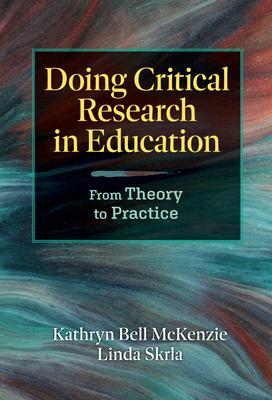This introductory text provides a clear, readable description of critical theory research and how to use it in educational settings. Critical theory has evolved since the early days of the Frankfurt School. It no longer addresses only issues of capitalism, culture, class, and ideology, but also challenges issues of race, sexual orientation, gender, ability, ethnicity, and more. In the zeitgeist of today, these issues are on the debate stage. This timely guide is divided into three main sections: Background of Critical Research in Education, Intersectional and Identity-Based Critical Research in Education, and Additional Types of Critical Research in Education. For each critical approach, the authors provide background, important terminology and concepts, notable researchers and theories, and information about how to design and conduct a study using examples of published articles. Doing Critical Research in Educationis a must-have for anyone who wants to engage in critical research to assist them in understanding and addressing some of the most pressing issues in education today, as well as all areas in which there is oppression or marginalization of students and their communities.
Book Features:
- Offers a thorough yet accessible overview on how to employ critical theory in research.
- Provides a rich explanation of difficult foundational knowledge with examples of how to apply the concepts in education settings.
- Includes a user-friendly format appropriate for students, professors, researchers, and practitioners.
